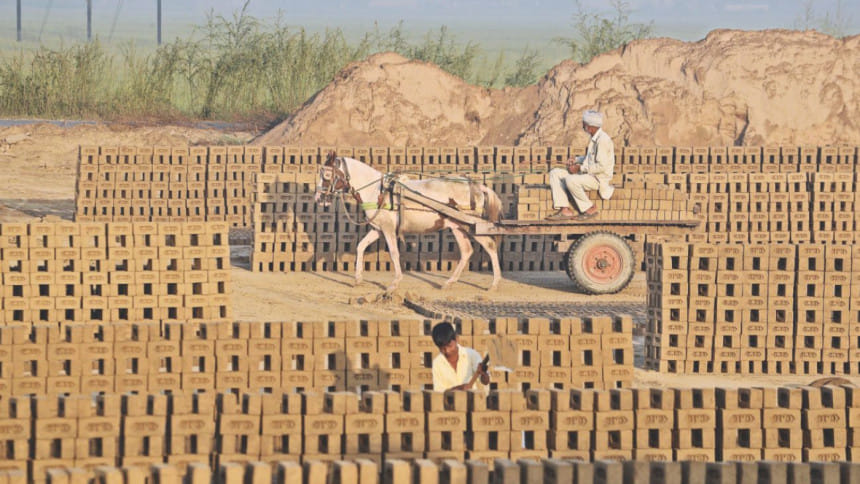Indian brick workers treated 'worse than slaves': NGO

Millions of Indian brick workers are trapped in bonded labour and regularly cheated out of their wages, an anti-slavery group said Wednesday as it demanded government action.
A study by Anti-Slavery International in the northern state of Punjab said workers are often rescued by NGOs only to return to the kilns, needing back wages owed to them or lacking other opportunities.
There are an estimated 10 million workers toiling amid punishing heat and life-threatening pollution at tens of thousands of small-scale brick kilns in India.
The kilns have become part of the underbelly of India's economic miracle, producing building materials for gleaming offices, factories and call centres sprouting up across the world's seventh largest economy.
Impoverished families are often forced to involve their children in hard labour since workers are paid by the number of bricks made.
The "Invisible Chains" report found 65 to 80 percent of children under 14 working for an average of nine hours a day over the hot summer months.
"We have found appalling levels of bonded labour and child labour... young children are working for nine hours a day in a dusty air filled with chemicals rather than going to school," Sara Mount, the group's Asia programme manager, said.
"Often brick kiln workers are rescued from a situation of bonded labour in brick kilns in one season but then have little choice in the following season but to work in the brick kilns again," she said in the report.
Bonded labour is illegal in India but rules are regularly flouted to maximise profits with little fear of the law.
Scenes of sweaty bare-footed workers hauling heavy loads and hacking at clay show the economic benefits of India's speedy growth are yet to reach the marginalised sections of the society.
The report is based on testimonies from families who have worked in the kilns in squalid conditions.
"We toiled day and night for five months but we were barely paid the wages," said Nohar Bai, a 35-year-old worker.
"Together with my husband we would make some 1,400 bricks in a day. We were a group of 23 people and at night they would lock us all up in a small room. We were treated worse than slaves," she told AFP by phone.
Rinky, a 26-year-old mother of one, said her employers owed her family 32,000 rupees ($498) -- a fortune for many in a country where millions live on less than $2 a day.
"We will not go back again to work there even if it means we will have to forgo what is our rightful earning," she said.
Tejinder Singh Dhaliwal, Punjab's labour commissioner, denied rules were being flouted with impunity at the kilns.
“Whenever we get any complaint we act promptly. On the whole conditions are not too bad," he told AFP. "Even otherwise we conduct our own surveys and wherever needed we take action. I don't think rules are being flouted."

 For all latest news, follow The Daily Star's Google News channel.
For all latest news, follow The Daily Star's Google News channel. 




Comments